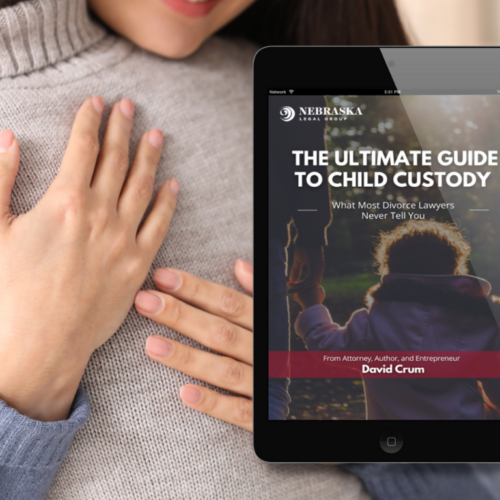Types of Child Custody in Nebraska
Child custody can be a little confusing for parents and guardians in Nebraska because different terminology is used depending on the type of custody under consideration. Both the day-to-day needs of the child and the longer-term “big picture” requirements must be taken into account as the best interests of the child are considered.
Legal custody refers to who makes the legal decisions regarding the welfare of the children, including education, medical care, religious upbringing, etc. Physical custody, on the other hand, refers to where the child lives.
In some cases, it is not practical or desirable for a child to spend equal time with each parent and one parent will be awarded sole or primary physical custody. The other parent will be awarded parenting time. In other cases, joint physical custody may be awarded.
Legal Custody of Children
Legal custody of the children refers to which parent has the right to make major decisions in the lives of their children.
Nebraska courts generally want parents to share joint legal custody of their children, meaning they expect parents will share the same amount of responsibility when it comes to making decisions about the children’s education, healthcare, and other aspects of their lives.
Joint legal custody arrangements require a collaborative effort between the parents. Legal custody, however, is determined on a case-by-case basis, and in some situations, the court may award one parent sole legal custody of the children.
Physical Custody and Visitation
Physical custody is completely separate from legal custody and refers to the amount of time the children spend with each parent.
These periods are usually called “parenting time”. They vary greatly depending upon the circumstances of the parties and the age of the children.
If the children are with one parent a majority of the time, that parent is typically referred to as the “primary custodian,” or “primary parent.”
Factors To Consider When Determining Child Custody
The pole star standard by which the court must determine child custody is what is in “the best interests of the child.”
To minimize the trauma of divorce and an unhealthy custody arrangement, the parties should always remain focused on this standard, taking into account such things as the age of the children, their emotional well-being, and their present and former relationships with each parent.
It can be tough to remain focused during the emotional challenges of divorce proceedings but unless parents can come to a custody and parenting agreement that does place the interests of the child first and foremost, it will be rejected by the court.
The Nebraska Parenting Act requires that all parents in a custody dispute complete a parenting education class. It also requires participation in mediation to attempt to complete a mutually agreeable parenting plan and to have matters settled out of court.
The guidance of an experienced family law attorney during this process can be invaluable in the pursuit of a positive outcome for you and your children.
Determining the Best Interests of the Child
In determining the best interests of the child, the following factors, though this list is not exhaustive, should be considered:
- The nature of the child’s relationship with each parent
- The mental and physical health of the parents/guardians
- The health, well-being, and social behavior of the child
- Any history of child abuse, domestic violence, negligence, or substance abuse
- The child’s wishes (if the child is mature enough to express a reasonable opinion)
Get in touch with our Lincoln child custody attorneys or our Omaha child custody attorneys to get started.



